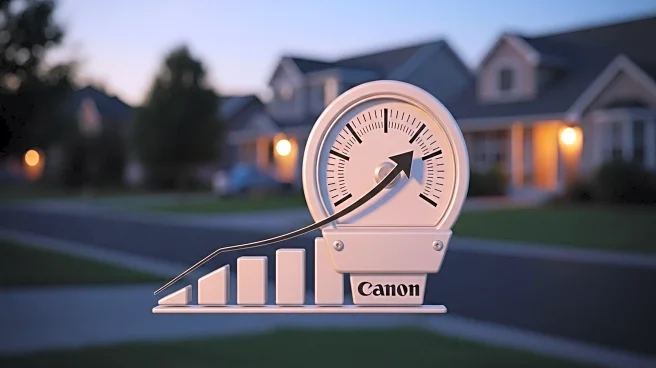What's Happening?
The California Public Utilities Commission is poised to approve a nearly 10% rate increase for Southern California Edison customers, effective next month. This decision will raise the average residential bill by approximately $17 monthly, translating to an annual increase of about $200. The commission's vote on the proposal is scheduled for Thursday, following recommendations from an administrative law judge. The rate hike is part of a general rate case, allowing Edison to spend $9.8 billion on grid operations and maintenance this year, a 13.7% increase from last year. The company has faced criticism from customers, particularly those affected by the Eaton fire, which was allegedly sparked by Edison equipment. Despite increased spending on fire prevention, Edison has been linked to multiple wildfires, prompting lawsuits and public outcry.
Why It's Important?
The rate hike has significant implications for Southern California residents, many of whom are already struggling with high utility costs. With over 860,000 Edison customers behind on their bills, the increase could exacerbate financial strain. The decision also highlights ongoing challenges in balancing infrastructure investment with consumer affordability. Edison's efforts to enhance grid reliability and support clean energy transitions are crucial, yet the associated costs are contentious. The company's role in recent wildfires further complicates its public image, as it seeks to pass on fire-related damages to customers. This situation underscores the broader debate over utility accountability and the financial burden on consumers.
What's Next?
Following the commission's vote, Edison customers can expect further rate increases tied to inflation through 2028. Additionally, a new monthly fixed charge will be implemented in November, affecting those with low electricity usage. The company is also seeking approval for rate hikes to cover damages from past wildfires. As Edison continues to invest in fire prevention, the frequency of preventative power shutoffs is expected to rise, impacting more customers. Stakeholders, including government officials and consumer advocacy groups, may respond to these developments, potentially influencing future regulatory decisions.
Beyond the Headlines
The rate hike raises ethical questions about the responsibility of utilities in managing fire risks and the fairness of passing costs to consumers. It also highlights the tension between corporate profit motives and public welfare, as Edison seeks to maintain investor confidence amid wildfire-related challenges. The situation may prompt discussions on alternative energy solutions and regulatory reforms to ensure equitable access to essential services.









